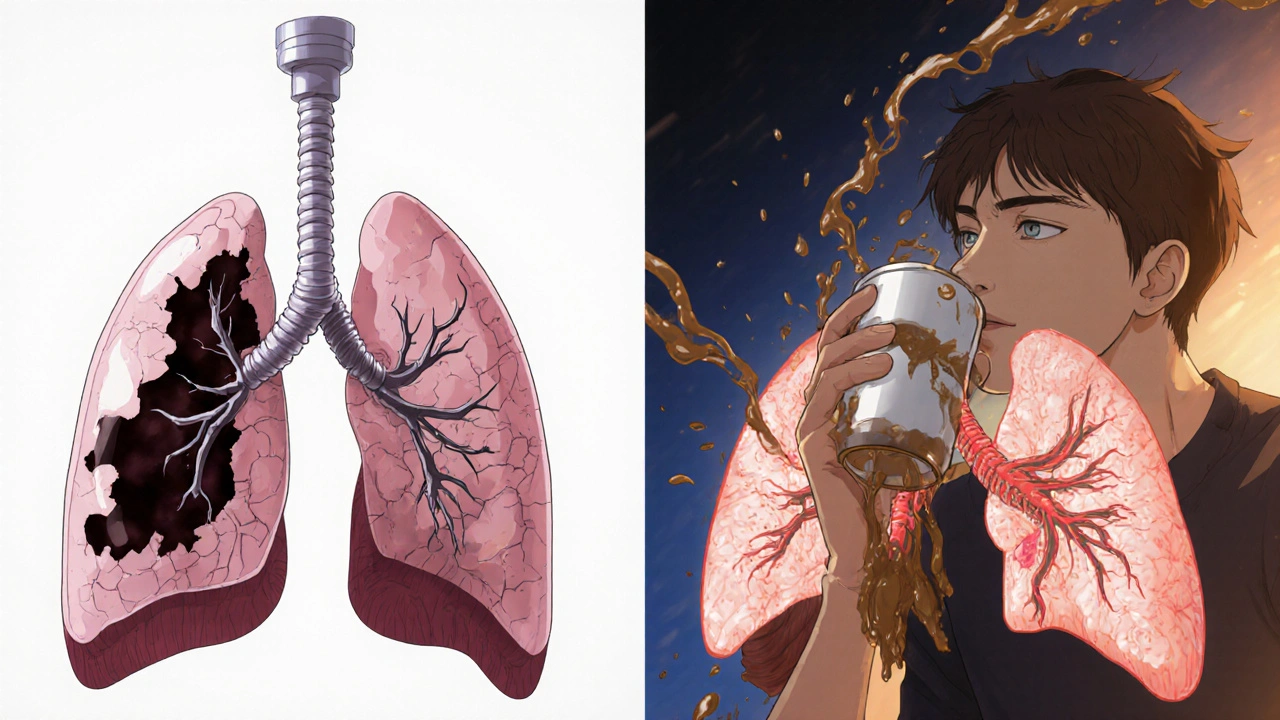Chronic Bronchitis: Causes, Treatments, and How Medications Affect Your Lungs
When you have chronic bronchitis, a long-term inflammation of the bronchial tubes that leads to constant coughing and mucus buildup. Also known as COPD with chronic bronchitic features, it’s not just a bad cold that won’t go away—it’s a lasting change in how your lungs work, often from years of smoking or air pollution exposure. Unlike acute bronchitis, which fades in weeks, chronic bronchitis sticks around for at least three months a year, for two years in a row. It’s one of the two main forms of COPD, a group of lung diseases that make it hard to breathe. It often overlaps with emphysema, but what sets it apart is the constant wet cough and the feeling that your airways are always clogged.
People with chronic bronchitis don’t just cough—they struggle. Simple tasks like walking to the mailbox or climbing stairs can leave them winded. That’s because the lining of their airways is swollen, producing too much mucus, and the tiny hairs (cilia) that normally sweep out gunk are damaged. Over time, this leads to airflow blockage, reduced oxygen, and frequent flare-ups. Many turn to inhalers, devices that deliver medicine directly to the lungs to open airways and reduce swelling. Common types include bronchodilators like albuterol and combination inhalers like Symbicort, which mix a long-acting bronchodilator with a steroid. These aren’t cures, but they help you breathe easier day to day. Some patients also use oral meds, oxygen therapy, or pulmonary rehab to stay active. But the biggest factor? Stopping smoking. Nothing else comes close to slowing this disease down.
What you eat, how you sleep, and even how you store your meds can matter. Moisture can ruin inhaler cartridges. Drug interactions—like mixing certain antibiotics with bronchodilators—can trigger dangerous rhythms. And while you might think of chronic bronchitis as just a lung issue, it’s tied to gut health, heart strain, and even depression. That’s why the posts here cover everything from how to use your inhaler correctly to what happens when you combine it with other meds, how to protect your pills from humidity, and why some people take separate generics instead of combo pills to manage costs and side effects. You’ll find real advice on avoiding flare-ups, handling emergencies with your meds, and recognizing when a cough is more than just a cold. This isn’t theory—it’s what works for people living with this every day.
Chronic Bronchitis vs. Emphysema: Key Differences in COPD and How They Affect Treatment
Chronic bronchitis and emphysema are two distinct forms of COPD with different symptoms, causes, and treatments. Understanding which one affects you can lead to better care and fewer hospital visits.

